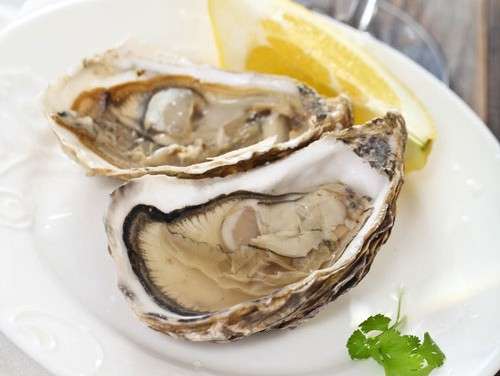
Zinc is in every cell of our bodies, it’s a component in 300+ enzyme reactions – more than any other mineral, it aids in the absorption of vitamin A, is necessary for hormones (thymus, insulin, growth & sex hormones – especially the male reproductive system). It’s stored mostly in muscle (65%), and is thus a very important mineral for the bodybuilder. It’s high in red & white blood cells, and other high concentrations in bone, skin, liver, retina, pancreas, prostate. It’s needed for proper maintenaince of vitamin E, and has a direct impact on the immune system due to its anti-oxidant properties.
Zinc also plays a vital role in skin and vision health. And if all that isn’t enough, zinc is also needed to manufacture HCl & digestive enzymes, thus playing a very crucial role in digestive health.
Even a mild deficiency in zinc can have far reaching health implications; including common skin changes, recurrent infections, sleep disturbances, impaired glucose tolerance (re: insulin), digestive impairment, loss of sense or smell, reduced immunity, abnormal menstruation, poor wound healing, mouth ulcers, halitosis, and white spots on fingernails.
Many things can reduce the absorption of zinc in the body, including diabetes, alcoholism, growth spurts, inflammatory bowel disease, diarrhea, celiac disease, old age, hypochlorydria (low stomach acid), BCP use, pregnancy & lactation.
No single food is considered a high dietary source of zinc; except perhaps oysters, but unless you live by the sea and love these slimy little morsels, who eats fresh oysters regularly 3-4x week?! Therefore, getting adequate dietary zinc can be difficult. Supplementing 15-20 mg / day can be beneficial. All forms except sulfate seem to work equally well. Excessive supplementing is not recommended, however having too much can lead to vomitting, so toxicity is not likely. Although supplementing is often beneficial for many people, it should never replace natural whole food sources. Other than oysters, top dietary sources of zinc include beef, shrimp, ginger root, shiitake & crimini mushrooms, asparagus, pecans, almonds, walnuts, hazel nuts, pumpkin seeds, whole wheat, rye, oats, quinoa, split peas, green peas, and lima beans.
Now you know 🙂

